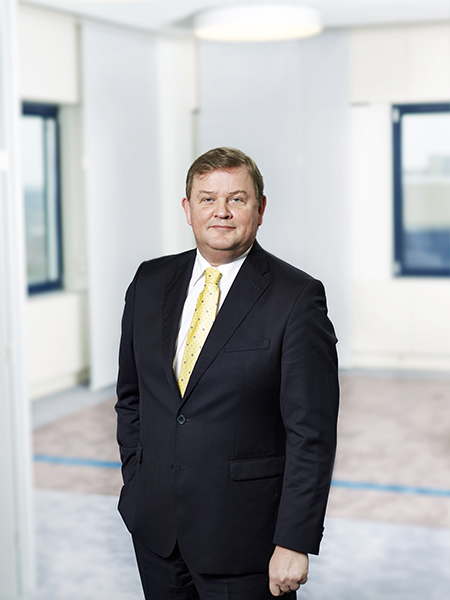 |
|
Feike Sijbesma, CEO of Royal DSM |
Editor's note: At the World Economic Forum's three-day meeting in Dalian, Liaoning province, China's economic growth is once again in the spotlight. More than 1,700 participants from 90 countries are attending "Summer Davos", opening on Wednesday, to chart a new course for growth as global recovery sinks into uncertainty. Before the conference began, business leaders from international companies shared their opinions with China Daily about China's economic prospects and what strategies they may take to readjust to the nation's new normal of growth.
Here are the excerpts from the interview:
1.Economic slowdown pressures have increased in China since the second half of 2014. During the first six months this year, GDP growth has fallen below 7 percent, while deflation pressures have risen in the manufacturing sector. Against this backdrop, what are the challenges that you have faced/continue to face in China, especially with regard to the business development strategy and actual operations?
The current, somewhat lower, growth figure of the Chinese economy is still impressive and relatively high compared to other economies. The challenge will be to increase the share of domestic consumption instead of investments, especially in such sectors as infrastructure. Also, it is desirable that China reduces overcapacity that so many industries are struggling with DSM's business in China is doing well. Over the past two years we posted double-digit growth rate in the country. We expect to grow strongly in the coming years.
2.How do you see the economic reforms unraveling further in China? What do you think are going to be the key takeaways from the ongoing reforms for your business?
The focus of the leadership on the so-called “New Normal” is good and logical one. China is expected to register a somewhat slower economic growth, although it will still be relatively high. China will, most likely, focus more on innovation and domestic consumption than on manufacturing and investments. We see ongoing reforms to keep China as one of the world's leading economies. State-owned enterprises are becoming more agile and such issues as climate change are being strongly addressed by the leadership.
3. Have you been facing more pressures due to the energy conservation and emission reduction moves? If so, could you tell us a little bit about the pressures and the measures taken to counter the same? Did the moves entail additional investment for energy conservation and emission reduction?
China is clearly addressing climate change and reducing carbon emissions. This will also benefit China itself, as it will help economic growth and keep cities comfortable for live in. Royal DSM is contributing to these measures by reducing of its own emissions. It is also contributing by developing and introducing new forms of alternative energy, such as new coatings that increase the yield of solar panels and the introduction of new technologies turning agricultural waste into green energy.
4. How would you rate you company's performance in China during 2014? Over the next five years, do you see an increase/decrease in China's contribution to your global business? Having said that, do you also foresee any major risks in the China market over the long term?
The growth of business in China has been impressive over the recent years. Today we see some pressures regarding our growth. Still, due to the ongoing urbanization, DSM sees good opportunities in, for example, animal nutrition and human food and nutrition business. For animal health we just opened world's largest animal feed development center outside Beijing. In human food we are investing in new food ingredients, among others in the field of texturizing food ingredients.
